Beware the tiger
Updated: 2015-12-05 03:09
By Yu ran in Shanghai(China Daily USA)
|
||||||||
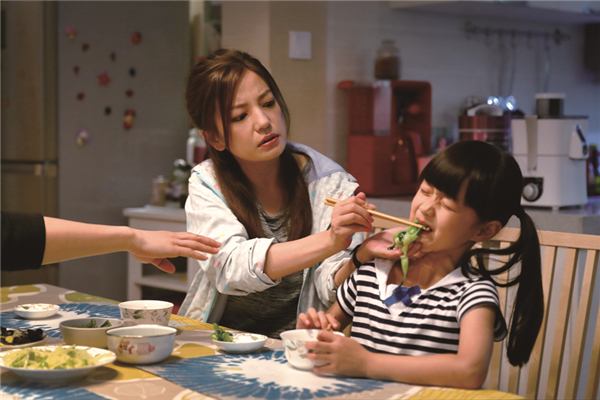 |
|
The Chinese method of parenting has become such a hot topic in society these days that television series such as Tiger Mom and Cat Dad, featuring Chinese actors Zhao Wei and Tong Dawei, have spawned as a result. |
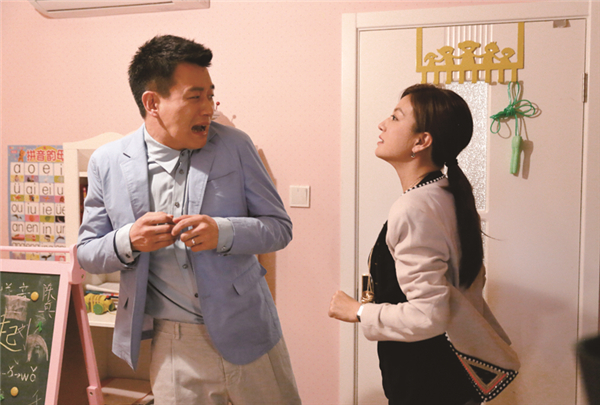 |
|
The Chinese method of parenting has become such a hot topic in society these days that television series such as Tiger Mom and Cat Dad, featuring Chinese actors Zhao Wei and Tong Dawei, have spawned as a result. |
The prospect of her acting like a “tiger mother” had never crossed her mind, until one day when her eldest son called her “the strictest person in the world”. Even her friends and family members have agreed with this assessment. In her defence, Chen said that she is merely trying to give her children a good headstart to life.
“I want to provide them with a disciplined environment to grow up in so that they can go on to be successful in life,” said the 36-year-old.
The term “tiger mother” first came to prominence in 2011 when Amy Chua, a Chinese-American mother and Yale University law professor, wrote the book Battle Hymn of the Tiger Mother, a story that touches on the typically strict upbringing methods of Chinese mothers.
In the book, Chua described how she educated her two daughters, demanding that they become the top students in school for every subject except gym and drama. She also wrote about how her daughters were never allowed to score grades less than an A, and were banned from watching television or playing computer games. The book triggered heated debates in China and the United States, with Western audiences perceiving that Chua was advocating the Chinese methodology as the superior style of parenting.
In certain ways, Chen is no different to the American author. The former sends her eldest son to a British international school while the younger child attends classes at a well-known private kindergarten. Both sons have also been made to attend regular special interest activities including piano classes, ice hockey training sessions and math lessons throughout the week.
“I don’t want them to lose ground at the start. I know parents these days are pushing their kids to learn a variety of skills in the top schools to ensure they are not left behind,” said Chen.
This innate desire in many Chinese mothers to want their children to outperform others have given birth to the term “pinma”, which in English is loosely translated to “mompetition”. In order to stand out from the competition, Chen believes the key lies in versatility, seeing how the education system in China has in the past decade shifted from an examination-oriented method to one that values having multiple talents.
She added that mothers today must not only be able to carry out traditional tasks such as household chores, but also be adept in teaching mathematics, English grammar, painting and learning musical instruments.
Role reversal
Meanwhile, the role of the father in the family seems to have diminished, a phenomenon which is, ironically, contrary to the traditional model of a Chinese family. The patriarch used to be labeled as the disciplinarian in the household who would bring home the bacon and call the shots, while the mother was often associated with being the submissive, doting mother to their children.
Fu Xin, a children’s education expert at an early education institution in Shanghai, said that this change is unsurprising given how women in today’s modern society are better educated and hence able to secure higher job positions. This has in turn helped to level the playing field, both in the workforce and at home.
According to a survey conducted on 1,338 parents from three kindergartens and six primary and middle schools in Nanjing, Jiangsu province, the mother now has the final say when it comes to her child’s education, and more than 61 percent of the families polled stated that the matriarch is responsible for handling schoolwork matters. However, Fu warned that letting just one member of the family have complete control over education matters can be detrimental at times.
“If mothers have scant knowledge of the norms of education and are misguided by wrong educational ideas, they might actually cause more harm to their children and their future,” said Fu.
The “tiger mother” approach does not always produce success stories, too, noted Fu. One such example can be seen in Zheng Qian, who ended up divorcing her husband after four years due to constant arguments on education and family issues. As a result of the broken marriage, their daughter has become reclusive and antisocial.
Zheng had quit her job to become a stay-at-home-mother after giving birth. She had sent her daughter to early education courses when she was only five months old, and forced the child to learn violin at the age of three, in addition to ballet lessons. Zheng admitted to even beating the child when the latter refused to practice.
“I overreacted. I had expected my daughter to become better than others. I was overly stern to her and my ex-husband, and sometimes I would even behave like a tiger and shout at them,” said Zheng.
Yang Xiong, the director of the youth institute at the Shanghai Academy of Social Sciences, also weighed in on the effects of such behavior, saying: “There is no denying that the influence of family education is the most profound in a child’s development. However, unlike other types of investments, education is not something parents necessarily will harvest as much as they expect.”
The alternative
As it turned out, the “cat dad” — who adopts a softer parenting approach — is the very antithesis of the “tiger mother”. One of the first men to be dubbed as such is Chang Zhitao, who was engaged in a heated debate with Chua over the issue of parenting after her book was published.
“I prefer to use a structured but not overly rigid method to educate my daughter to be a nice and confident person who is free to pursue her own interests. I don’t tell her that she has to be versatile as I always believe that she was born to be herself, not a copy of anyone,” said Chang, who is proud that his daughter is a Harvard student.
Chang had noticed through the years that children born after 1990 like his daughter are more self-centered and inclined to have their own thoughts. He believes that the best way to communicate with them should be to act as an equal, like a friend, instead of an authoritative figure who has the final say in everything.
“I act more like a consultant, listening to what she wants before giving my advice. I don’t force her to do anything. I am learning to grow with her, to understand and support her like a friend,” said Chang.
“I don’t think that a ‘cat father’ is necessarily better than a ‘tiger mother’, but I do believe that concordant opinions between parents regarding education is the most important thing in a family as this will help them raise an outstanding child.”
- Locals have tradition of drying foods during harvest season
- Beijing-Tianjin-Hebei govts to cooperate on emissions control
- Web promotion of prostitution to be targeted
- Two more spells of smog predicted to sweep North China
- Glass bridge in grand canyon of Zhangjiajie under construction
- Road rage cases pose huge safety challenge
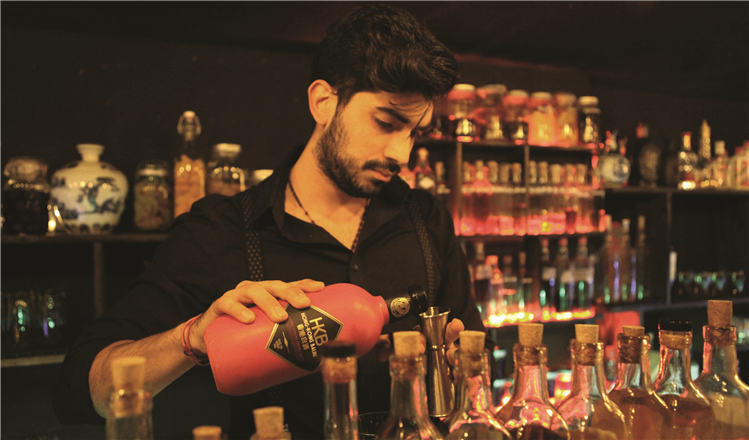
 Can Chinese ‘white lightning’ make it in US?
Can Chinese ‘white lightning’ make it in US?
 Gunmen go on a killing spree in Southern California
Gunmen go on a killing spree in Southern California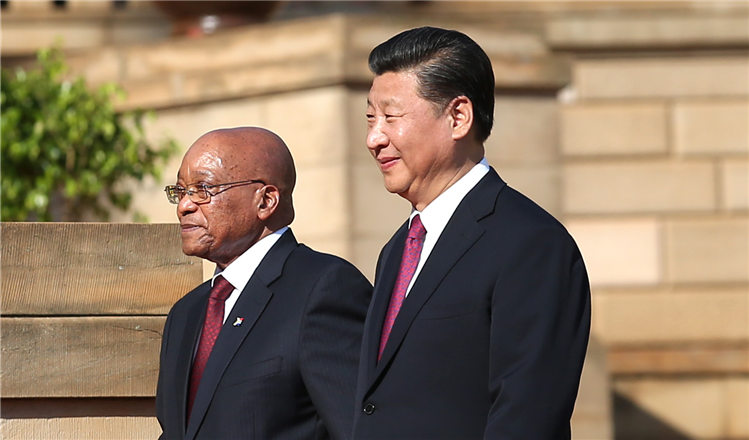
 Chinese, South African presidents hold talks to cement partnership
Chinese, South African presidents hold talks to cement partnership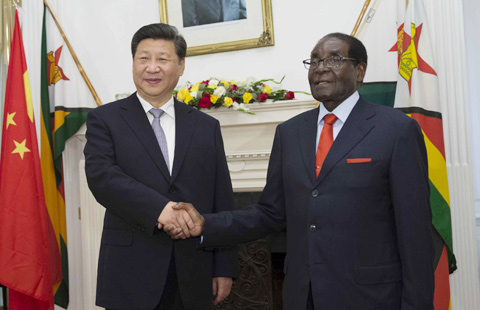
 China, Zimbabwe agree to boost cooperation
China, Zimbabwe agree to boost cooperation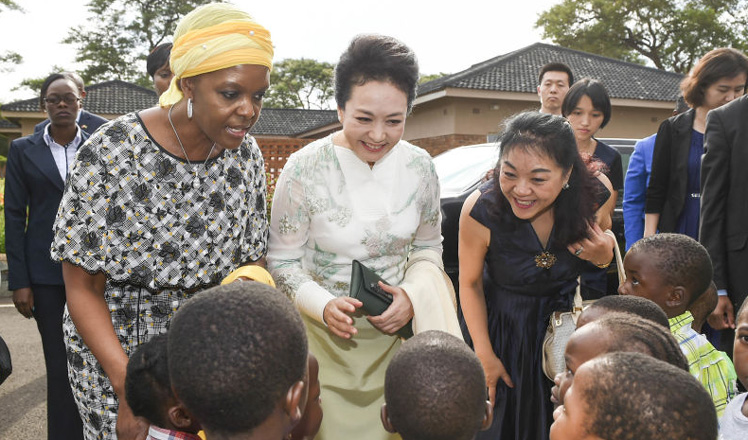
 First lady visits Africa's 'new window' on China
First lady visits Africa's 'new window' on China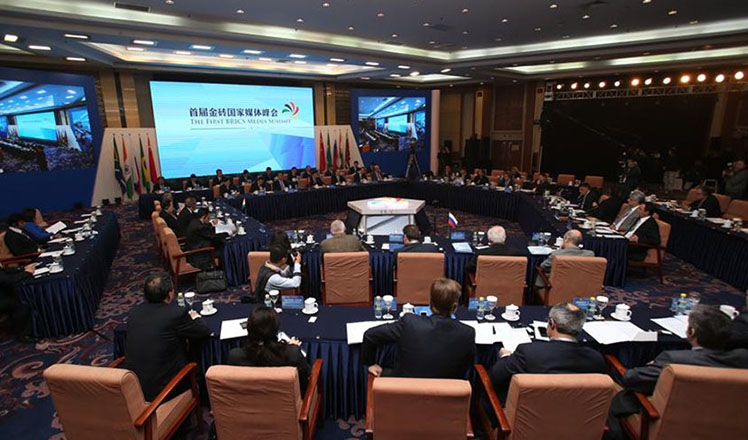
 BRICS media leaders to secure louder global voice
BRICS media leaders to secure louder global voice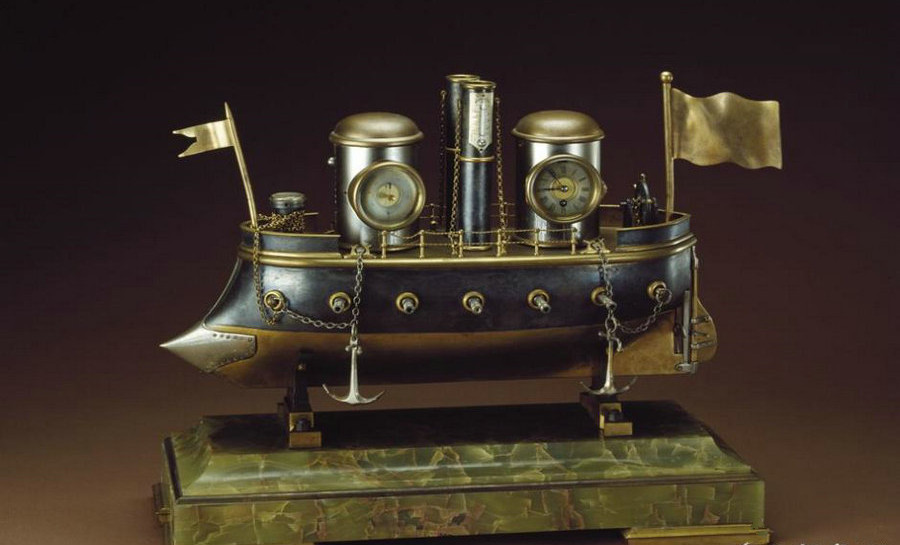
 Western science in the eyes of Chinese emperors
Western science in the eyes of Chinese emperors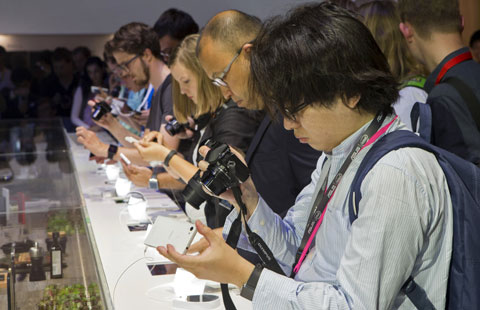
 Top 10 smartphone vendors with highest shipments in Q3 2015
Top 10 smartphone vendors with highest shipments in Q3 2015
Most Viewed
Editor's Picks

|

|

|

|

|

|
Today's Top News
Shooting rampage at US social services agency leaves 14 dead
Chinese bargain hunters are changing the retail game
Chinese president arrives in Turkey for G20 summit
Islamic State claims responsibility for Paris attacks
Obama, Netanyahu at White House seek to mend US-Israel ties
China, not Canada, is top US trade partner
Tu first Chinese to win Nobel Prize in Medicine
Huntsman says Sino-US relationship needs common goals
US Weekly

|

|








